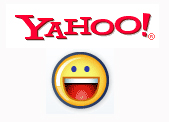
Lately, there has been a lot of intrigue at new media conglomerate Yahoo. Most average folks use Yahoo for the email or perhaps the personalized portal, My Yahoo, or maybe the fantasy football leagues. Largely, Yahoo makes its money with advertising, though most of the content isn’t created by Yahoo itself.
But when CEO Terry Semel, formerly of the Warner Bros. studio, brought on Hollywood heavy Lloyd Braun about a year ago to head the Yahoo Media Group in Santa Monica, all eyes were on Yahoo to remake itself as more of an original media creator instead of an aggregator. There was the much heralded Kevin Sites in the Hot Zone, a world tour through global war zones, and the launch of the CNET-like Yahoo Tech and its original blogs.
But now it’s time to turn the tanker around, as Yahoo’s stock has tanked all year, and advertising revenues have stagnated. But Yahoo’s drama hasn’t only played out in the boardrooms of the company and among its employees. Instead, much of the action has been broadcast to the Internet indirectly from leaks and on employee blogs. How intentional that is remains a mystery for now, because Yahoo employees are known for being tight-lipped about internal matters. (I spent almost a year awaiting a chance to even visit the Yahoo News operation in Sunnyvale, Calif, a couple years ago.)
The first big bang came when an internal memo from senior vice president Brad Garlinghouse hit the web. The memo, which became known as the “Peanut Butter Manifesto,” complained that the company had spread itself too thin, just like peanut butter on bread. The memo itself spread through the blogosphere and was even posted to the Wall Street Journal website. The Journal made the memo a “free feature,” so even people who don’t pay for a web subscription to WSJ.com could read it. Did that strategy work? It’s now the first result if you type peanut butter manifesto into Google search.
Not long after the memo was leaked in November, word started spreading that Yahoo would indeed take much of the memo to heart, and reorganize and simplify its corporate structure. Recently, CEO Terry Semel reacted to all the press (and blogger) speculation that he was finished by firing back in a fiery webcast to the staff. That webcast was helpfully transcribed by Yahoo’s Jonathan Strauss on his own Yahoo 360 public blog, which was picked up by GigaOm and Valleywag.
“I’m gonna put up there all of the press reports on how Yahoo! was going out of business five years ago,” Semel said. “And of how we were gonna be swallowed up by AOL, owned by Time Warner, and by Microsoft, and by everybody else. And Yahoo! looked like it had a dim future. Well those headlines, of course, were used to wrap a lot of fish in a lot of people’s houses, as the expression goes. And they were all full of shit, and they had no idea what we had planned for them. And they do not now as well!”
Well, maybe the press didn’t know what Yahoo had planned then, but the odds are that the press will know what it has planned in the future if these memos keep coming out like diverted press releases. And maybe that’s the point. If a CEO sends out a “company webcast” or an executive emails around an internal “manifesto” for change, who do they intend to see these? Just people within the company, or is there an understood wink and a nod that others will see it?
In both cases, the leaked memo and webcast transcript reflected well on Yahoo. Garlinghouse looked smart and prophetic, and Semel looked like a fired-up leader. And Strauss might have said he was “breaking a ton of rules” by posting the transcript of the webcast to his blog, but he still has a job. It might be a stretch to say these leaks were carefully crafted and planned by Yahoo PR, but in the end, they worked out OK for the company.
What’s more interesting is the ever-shrinking chance that any interesting internal corporate memos, emails, presentations or webcasts will actually stay internal. With the ease of sharing documents of any type online, the companies that are promoting user-generated content the most can only expect employees to use these same tools to turn the corporate agenda inside-out to the world. Maybe company memos need to be written in code or whispered in back rooms. That seems to be the only sure way to keep them off the blogs and out of the news.
